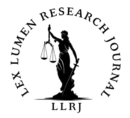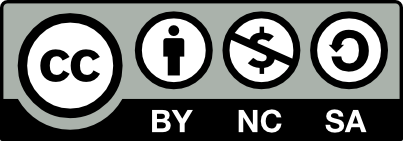Written By D Vetri Rakesh,
February 2025
INTRODUCTION:
Mental health disorders affect more than 2.4 billion people worldwide, accounting for 1% of the population and 20% of chronic cases. Poverty, prolonged therapy, and a lack of resources make the issue worse. Rehabilitation programs, which offer medical care and vocational training, can assist improve the lives of mentally ill people, who are viewed as a waste on society. Rehabilitation facilities can help the mentally ill overcome many barriers they face in life by rejuvenating their optimism, drive, and aspiration for their work. The relevance of “Home away from Home” in achieving the Sustainable Development Goals is emphasized. NGOs are asked to fill the service gap in the government for individuals with persistent mental illness. For better lives and full social involvement, WHO advocates community-based mental rehabilitation. Though there are rises in mental illnesses, fewer facilities for psychosocial rehabilitation exist to aid individuals in developing the necessary skills to lead emotionally, socially, and cognitively capable lives of independent employment, education, and community interaction[1]. The National Mental Health Plan provides top-class primary care and treatment facilities according to the Mental Healthcare Act of 2017[2] and the Mental Health Policy,2014[3].
LEGAL PROVISIONS FOR REHABILITATION:
- Constitutional rights of the disabled:
For all citizens, whether disabled or not, it ensures equality of status and of opportunity and to promotion of brotherhood. It even assures justice, freedom of expression, religion, faith, worship, language, writing, and culture. People with disabilities cannot lose their language, writing, or culture, nor can they be made to pay religious taxes. No citizen, including those with disabilities, shall be subjected to any disability, liability, restriction, or condition in their ability to visit public places or public resorts, as provided for in Article 15(2)[4]. All persons, including those with disabilities, shall have equal access to employment and appointments to governmental posts.
People with disabilities can present their case to the Supreme Court of India for its implementation of fundamental rights; property is not a right; therefore, only a law can take away such rights from disabled property holders; disabled people can include their names in the common electoral roll of their respective territorial constituency at the age of 18; disabled people are not untouchable because Article 17[5] strictly prohibits the practice of such activities; Article 21[6] states that life and liberty belongs to all, including people with disabilities; and Article 24[7] prohibits children under 14 years of age to be employed in hazardous employments and also implements a law against forced labour[8].
Regulations Concerning Health Care:
The constitution’s Article 47[9] states that the government is primarily responsible for ensuring the health and well-being of the populace, particularly by getting rid of dangerous substances like alcohol and drugs outside of medical settings. This Indian health legislation has the rights for individuals with impairment. One of the enactments that ensures every citizen’s health, impaired and otherwise, is the 1987 Mental Health Act[10].
- The persons with disabilities act 1995 (PWD)[11]:
Enacted on February 7, 1996, the “The People with Disabilities (Equal Opportunities, Protection of Rights, and Full Participation) Act, 1995”[12] applies to all disabled persons. It is a significant law because it guarantees that persons with disabilities shall have the opportunity to be involved in the country’s development on an equal footing with other persons.
Preventative and promotional measures for this Act can be cited by education, employment and vocational training, reservations, research and manpower development, barrier-free environment design, rehabilitation of disabled persons, unemployment allowance to disabled persons, special insurance for disabled employees and constructing homes for the disabled in severe forms[13].
- India’s 1992 Rehabilitation Council Act[14]:
This Act ensures that rehabilitation professionals will provide quality services by ensuring that they are registered with the Council, that Indian universities and institutions will continue to accept rehabilitation degrees earned in the United States, and that professionals are not coerced into acting unethically out of fear of losing their registration or facing disciplinary action. It also creates a centrally run statutory council to oversee the rehabilitation industry.
- Autism, Cerebral Palsy, Mental Retardation, and Multiple Disabilities Assistance Act of 1999[15]:
The Central Government in New Delhi should establish the National Trust for the Welfare of People with Autism, Cerebral Palsy, Mental Retardation, and Multiple Disability. The Board of Trustees is to ensure that the beneficiaries have a minimum standard of living and also grants are given to the registered organizations for disabled programs. A handicapped person is entitled to a legal guardian, whom local committees are to appoint. These guardians are law-bound to take care of the disabled person and their properties. If the disabled person or group fails to do their duties, then they can file a complaint against them with the central government. The Act also includes accountability, financial supervision, accounts, and audit for the National Trust.[16]
- Human Rights of People with Intellectual Disabilities: A UN Statement[17]:
The declaration on the rights of persons with intellectual impairments underlines the protection of their rights. It affords equal access to medical care, physical treatment, education, training, rehabilitation, and supervision, besides a good life, financial security, and the freedom to fully exploit their talents. The declaration also underlines involvement in family and community activities, giving the necessary support and institutional care in a regular home environment. In case of a guardian being provided, those with mental retardation should be able to have it if needed. The declaration has also depicted that the right to be tried in the court is enforceable along with protection from exploitation, abuse, or humiliating treatment[18].
- Mental Health Act,1987[19]:
It advocated national and international action on rights of people with intellectual impairment. It advocated for the equal medical treatments, the physical therapies, the educations, the trainings, the rehabilitation, and supervision of those with mental retardation. It stressed right to a reasonable livelihood as well as financial security. The statement emphasized the need to participate in the activities of family and communities as well as institutional care of such people and there be available a guardian to protect their rights. The declaration also establishes the right to be tried by a court of law and the rights of people with mental impairments to be protected from exploitation, abuse, and humiliating treatment. Procedures when working with persons with intellectual impairments must begin with an impartial evaluation of their social skills, be evaluated regularly, and, if required, include an appeals process[20].
CONCLUSION:
Self-help techniques manage mental health disorders, such as depression and personality disorders. Rehabilitation service delivery is ensured by professional rehabilitation centres with therapy and rehabilitation services to manage illnesses. A healthy system and universal health coverage will offer full rehabilitation to a large population. Rehab Year 2030, an activity by the World Health Organization, was established in 2017. The program promotes international partners to undertake rehabilitation research, multidisciplinary workforce development, better governance, and better leadership. Rehabilitation centres can improve social well-being and community health through people’s improvement. Rehabilitation therapies help stabilize the mental condition of the patient and promote growth towards utilizing the full potential. It offers full psychiatric care that can make mentally ill individuals come back to their own local society.
[1] What Is a Rehabilitation Centre?, Rehab Today, https://www.rehabtoday.com/what-is-a-rehabilitation-centre/ (last visited Dec. 29, 2024).
[2] Mental Healthcare Act, 2017, No. 10, Acts of Parliament, 2017 (India).
[3] National Mental Health Policy, 2014, Ministry of Health & Family Welfare, Government of India.
[4] India Const. art. 15, cl. 2.
[5] India Const. art. 17.
[6] India Const. art. 21.
[7] India Const. art. 24.
[8] Legal Rights of the Disabled in India, Vikaspedia, https://vikaspedia.in/education/parents-corner/guidelines-for-parents-of-children-with-disabilities/legal-rights-of-the-disabled-in-india/ (last visited Dec. 29, 2024).
[9] India Const. art. 47.
[10] Mental Health Act, 1987, No. 14, Acts of Parliament, 1987 (India).
[11] Persons with Disabilities (Equal Opportunities, Protection of Rights and Full Participation) Act, 1995, No. 1, Acts of Parliament, 1995 (India).
[12] Persons with Disabilities (Equal Opportunities, Protection of Rights and Full Participation) Act, 1995, No. 1, Acts of Parliament, 1995 (India).
[13] Mental Health Laws in India, NMIMS Legal Aid Clinic, https://legalaid.nmims.edu/mental-health-laws-in-india/ (last visited Dec. 29, 2024).
[14] Rehabilitation Council of India Act, 1992, No. 34, Acts of Parliament, 1992 (India).
[15] National Trust for Welfare of Persons with Autism, Cerebral Palsy, Mental Retardation, and Multiple Disabilities Act, 1999, No. 44, Acts of Parliament, 1999 (India).
[16] National Trust for Welfare of Persons with Autism, Cerebral Palsy, Mental Retardation, and Multiple Disabilities Act, 1999, Ability India, https://abilityindia.org/resources/about-disability/national-trust-for-welfare-of-persons-with-autism-cerebral-palsy-mental-retardation-and-multiple-disabilities-act-1999/ (last visited Dec. 29, 2024).
[17] Human Rights of People with Intellectual Disabilities: A UN Statement, United Nations, https://www.un.org/esa/socdev/enable/rights/ (last visited Dec. 29, 2024).
[18] Nations, https://www.un.org/development/desa/disabilities/history-of-united-nations-and-persons-with-disabilities-a-human-rights-approach-the-1970s.html#:~:text=The%20Declaration%20stated%20that%20persons%20with%20intellectual%20disabilities,from%20exploitation%20and%20to%20access%20to%20legal%20procedures (last visited Dec. 29, 2024).
[19] Mental Health Act, 1987, No. 14, Acts of Parliament, 1987 (India).
[20] Juvenile Justice (Care and Protection of Children) Act, 2015, Vikaspedia, https://www.vikaspedia.in/education/child-rights/juvenile-justice-care-and-protection-of-children-act-2015 (last visited Dec. 29, 2024).


